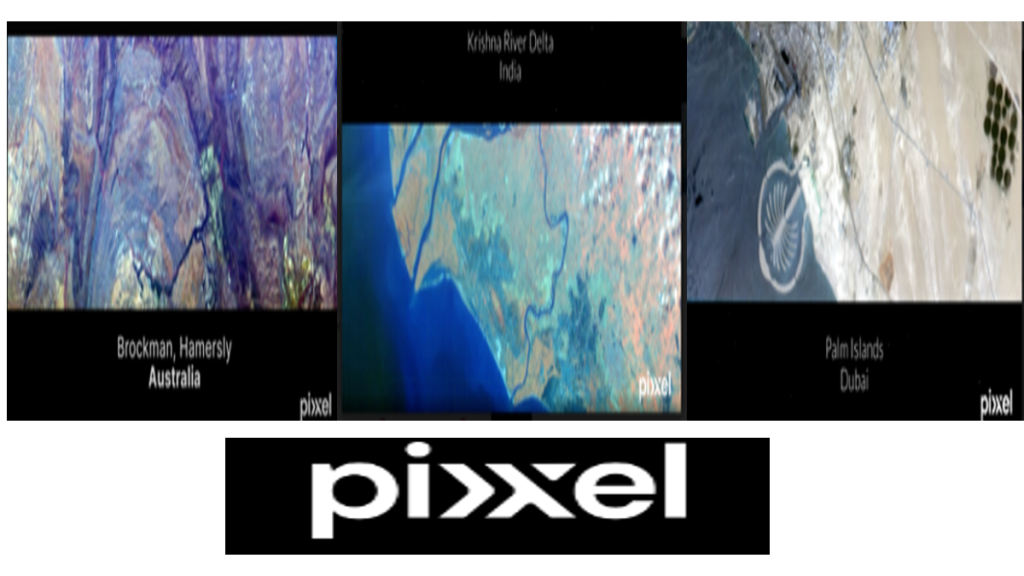Pixxel, the leading space data startup in India, has unveiled the first-ever set of hyperspectral images from its pathfinder satellites as part of its ‘First Light’ campaign. The images showcase intricate details of land and water features, including soil types, mountain ranges, bare lands, gold mines, reservoirs, agricultural farms, delta regions, and urban settlements, among others. Capable of detection, identification, and quantification of surface materials as well as biological and chemical processes, these images are aimed at helping identify vegetation stress, emissions, mineral exploration, and more.
Awais Ahmed, CEO of Pixxel, about the campaign, stated that it marks a significant milestone in earth observation. The images will help unearth unseen problems that are invisible to satellites in orbit today and enable sectors to make more informed and evidence-backed decisions related to global phenomena. With the recent launch of the 10m Shakuntala satellite, Pixxel has the highest resolution hyperspectral capacity, which they are beaming down and sharing with their customers. This success solidifies their vision of building a health monitor for the earth, as they progress further towards completing a constellation of the world’s highest-resolution hyperspectral earth imaging satellites, as well as an AI-powered analytics platform.
Pixxel has launched three pathfinder missions into orbit, including Shakuntala and Anand, and plans to launch a constellation of 24 satellites in 2024-25. The hyperspectral images captured by Pixxel’s satellites set a new standard in collecting and processing information from across the electromagnetic spectrum.
By leveraging the unique capabilities of hyperspectral imaging, Pixxel will provide a comprehensive view of the earth, helping to create a better and more sustainable future for the planet. The company has already signed partnerships with several organizations worldwide, including Australian agritech firm DataFarming, Australian-British mining MNC Rio Tinto, Colombia’s Procalculo, and geospatial specialist company Geoimage, as it steers closer to delivering actionable climate insights on a planetary scale.


